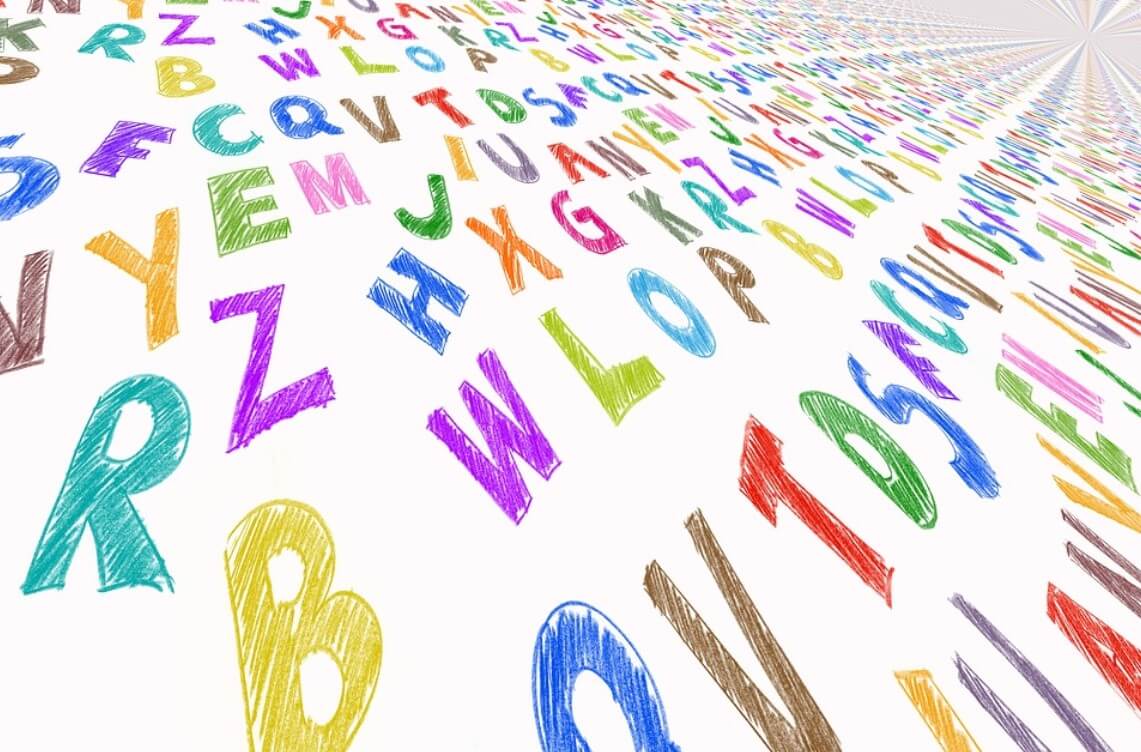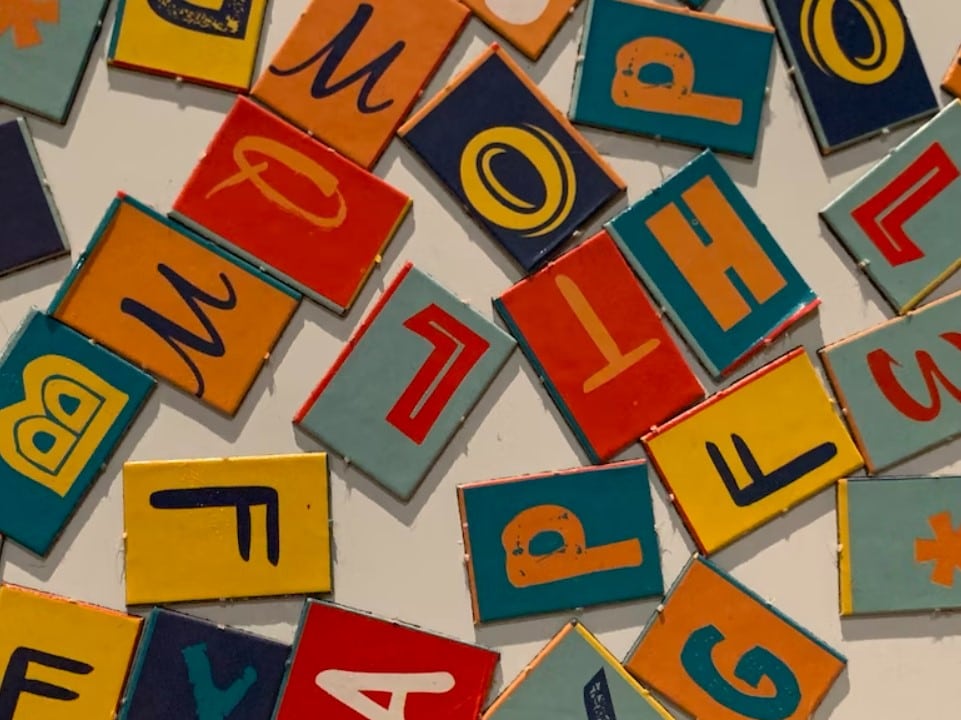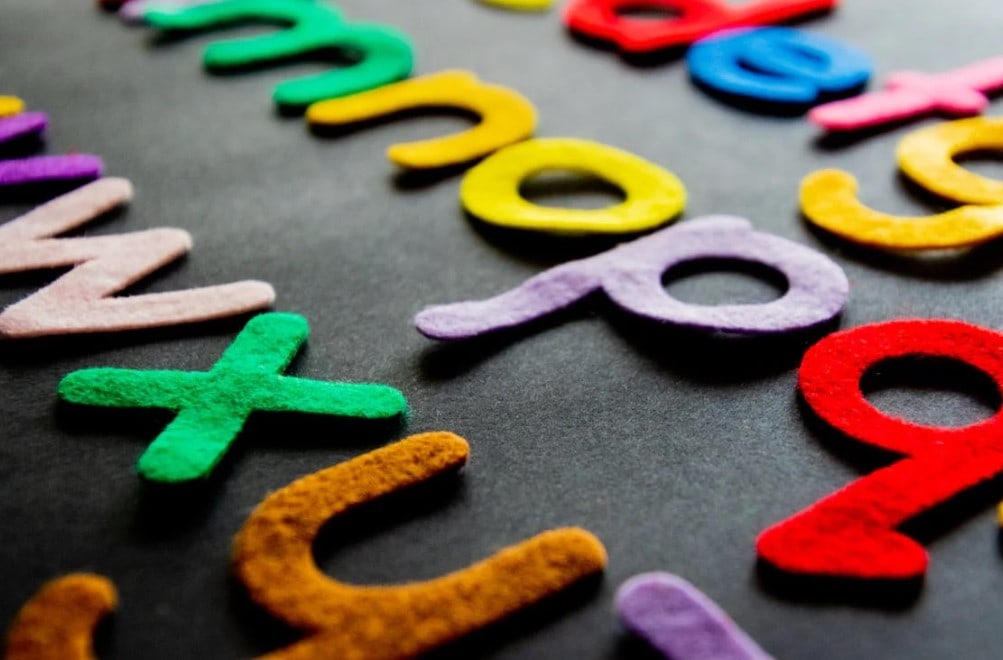Nothing hinders a person's academic success quite like their inability to read, spell, and write. This is the essence of dyslexia. This one thing may stand in the way of us realising our dreams. What if, however, we informed you that your dyslexia actually gives you advantages that will help you succeed? A positive mindset is all it takes to transform this difficulty into an opportunity.
Some of the world's most influential people in academia, business, entertainment, and the arts all happen to be dyslexic. You have just as much chance of success as they did, if not more. If you're looking for a private school that will challenge and inspire your child, look no further. Schedule a tour today and see what sets us apart.
Dyslexia is classified as a learning disability. Yes, it can be difficult to understand at first. Children with dyslexia read at a much slower rate than their peers; on average, it takes them half a year to read as many words as their peers read in a day. Researchers were therefore taken aback to see that those who read slowly were also exceptionally good at spotting the implausible numbers. Why, after all, would those who have trouble reading speedily respond to diagrams of causality?
What Is Dyslexia?
Dyslexia is a reading and writing disability. To put it simply, dyslexia is not a measure of IQ but rather a description of a unique mode of mental functioning.

Phonological dyslexia is the most common form of reading disability that makes it hard to segment words into phonemes. As a result, many persons with dyslexia also have trouble spelling, as this impedes the decoding process in reading.
Dyslexic People Are All Different
However, it's important to remember that people with dyslexia vary greatly. Dyslexia ranges from difficult to impossible to read. It's possible that reading is more of a challenge than spelling. Dyslexia strengths may also vary widely from one individual to the next.
Did you know that several organisations now promote the use of less stigmatising language when referring to dyslexia, such as referring to it as a "learning difference" rather than a "disability"?
Some people assume that dyslexics will have trouble in school or on the job because of their difficulties deciphering written text. But the old belief that people who struggle with reading should pursue creative careers or vocational training is no longer held.
A person with dyslexia can succeed in any field or academic discipline they choose with the help of appropriate accommodations and accommodations.
Learning Strategies For Dyslexics
It is not unusual for a student who is dyslexic to rely heavily on sight-reading, which is a sort of the whole recognition that does not require sounding out words.
Students with dyslexia often utilise mnemonics and other spelling tactics to help them memorise new, complex vocabulary.
Another tactic that may be useful is learning to touch type, as this reduces the spelling of a word to a series of key presses and muscle motions, which may be simpler to recall for someone with dyslexia.
Dyslexia Strengths You Should Know About
Due to differences in how their brains absorb information, people with dyslexia often excel in areas where others struggle.
Most people who struggle with reading are more left-brained than right-brained.
The brain's right and left halves have different structures. The distribution of cells is more uniform on the right (vs. in clusters).
Because of this, dyslexics are better able to see the big picture, recognise patterns, and come up with novel solutions because their connections have to travel farther.
People with dyslexia tend to think in a more global, rather than a narrow, way.
Adults and children with dyslexia may have trouble memorising facts, but they often have a knack for combining their own experiences with what they've learned to come up with novel solutions to problems.
They have the potential to be excellent contributors to a team, as well as pupils with a high level of originality, a flair for the arts, and a heightened
Reason being: the right hemisphere of the brain is responsible for visual processing and spatial reasoning.
Abstract thinkers
When all seemed lost, it was discovered that persons with dyslexia can understand esoteric concepts. They make for excellent thinkers. They have an abstract comprehension of human traits like bravery, love, and deceit, among others.
Critical thinkers
Some people who struggle with reading and writing also have an innate talent for using logic and reason. They have a firm grasp on the subtle distinctions between the two areas, and they employ analytical reasoning when faced with a challenge.
Mastery of a wide variety of puzzles
Although they may have trouble reading, many people who are dyslexic are experts at putting together complex puzzles. They are unparalleled in their ability to recognise the correct shape and solve difficult issues. Many dyslexics, who tend not to think in a linear fashion from one concept to the next, do best in situations that encourage and support their ability to think simultaneously.
Understanding the big picture
People who struggle with dyslexia tend to have a more comprehensive perspective. The forest is all they can see, yet they can't see the trees.
Wonderful communicators
Although many dyslexics struggle with reading words, they can often read others very well. They will give you a detailed explanation of the issue and offer suggestions for how to fix it. They also have a great deal of regard for the opinions of others.
High levels of empathy
Individuals who struggle with reading often have refreshingly genuine personalities. The difficulties in reading and writing can help kids develop compassion for those who face similar obstacles.
Some persons with dyslexia have the ability to "read the situation" and see things from others' points of view (empathy). The ability to do so can be quite potent.
It is unclear whether this increased empathy results from a difference in the way their brains are wired or whether their formative experiences of being different have made them more sensitive to the struggles of those who are different from themselves.
Improved pattern recognition
People with dyslexia may see the big picture and make connections between seemingly disparate ideas. In subjects like physics and mathematics, wherein visualisations are crucial, these benefits are likely to be of utmost importance.
Good spatial knowledge
Those who struggle with dyslexia often excel at visualising and moving three-dimensional objects in their minds. Dyslexia is common among the world's most talented creative professionals; many of the best architects and fashion designers are dyslexic.
As new ideas or information are added to the thought process, the person's mental representations become increasingly complex and three-dimensional. They don't have much of a private conversation with themselves. This kind of thinking occurs so quickly that it is typically imperceptible to conscious awareness. People with dyslexia often excel at mentally rearranging three-dimensional shapes. The list of famous dyslexics includes some of the world's best architects and designers.
Observant
Dyslexics have a natural ability to spot the outlier among vast visual datasets.
Christopher Tonkin, a dyslexic physicist, noted that he was unusually attuned to "things out of order."
The British intelligence organisation employs dyslexics because of their superior ability to process information in a "dispassionate, logical, and analytical" manner, which is crucial when dealing with dangers like international espionage.
People who have dyslexia may have difficulty reading and writing, but they may excel at recognising patterns and deducing meaning from them.
Reasoning
When studying something new, it's easy to lose sight of the big picture if you focus too much on the minute details. A typical dyslexic individual has trouble understanding the finer points of things yet has a keen eye for the broader picture. This quality can facilitate the recognition of patterns and the identification of trends in data.
Experience memory is the basis for narrative thinking (episodic memory). Persons with dyslexia have an enhanced capacity for experiential learning and memory recall, both of which are enhanced whether or not the individual has actually had the opportunity to go through the events themselves.
- Capable of recognising trends, weighing options, or settling on a course of action. Those with dyslexia tend to have above-average thinking skills (84%).
- Simplifying means to grasp, dissect, or reduce to their simplest elements a complicated idea or concept.
- Method of determining the validity of an argument or the location of the truth by applying reason.
- Making a call involves analysing data and forming hypotheses about potential outcomes.
- Definition of "visioning" - looking at a problem or issue from a strategic (overall) perspective rather than getting bogged down in the details.
Enhanced Side Vision
People who have dyslexia tend to have wider peripheral vision than the average person. Though it may be challenging to zero in on specific letters, people with dyslexia may have a better time recognising larger shapes.
Extremely imaginative
People who struggle with reading may yet be brilliant musicians and artists. Famous musicians that are also dyslexic include Cher, John Lennon, and Carly Simon. There is also proof that the dyslexic mind is particularly adept at information perception and can look at an object from a wider variety of perspectives because of this. Picasso and Pollock, two of the world's most famous artists, both suffered with dyslexia. Roald Dahl was eccentric, too.
In the entertainment industry, many of the most innovative performers have dyslexia. Johnny Depp, Keira Knightley, and Orlando Bloom are just a few examples.
Creative non-conformist thinking
People who have dyslexia are known to have flashes of insight that allow them to tackle difficulties in novel ways.
This is a daydreamy, intuitive method of problem solving. Dyslexics solve problems by staring out the window, allowing their minds to relax into neutral and begin to form connections.
Problem-solving entails a mix of creativity and reasoning ability that many dyslexics excel at. They are more likely to think beyond the box, increasing the likelihood that they may find connections that others have missed. They can be great inventors and unique thinkers, and they excel at bringing together resources and information from many fields. One well-known person who is noted for his original ideas is Richard Branson. As a matter of fact, he considers his dyslexia to be one of his best assets.
Inspiration, confidence, and value in oneself
Dyslexic people have the potential to be brilliant problem-solvers. Perhaps this explains the success of many CEOs who, as high school students, struggled with dyslexia but have now gone on to become successful business leaders.
Some people claim that a dyslexic learner must be diligent and tenacious right from the start, and that these traits provide dyslexic children with the motivation they need to succeed.
The ability to rise above adversity is a key component to personal growth.
However, there are many famous dyslexics who have achieved great success, such Steven Spielberg and Tom Cruise.
They may have felt the need to keep their dyslexia a secret from their parents and teachers because of the difficulties it caused them at school. They were called names like "dumb" and "lazy" and told they weren't "trying hard enough."
The signs and symptoms of dyslexia should not be ignored by teachers or parents.
Those who have dyslexia but don't know how to deal with it may find reading to be a constant source of frustration for the rest of their lives.
It can cause a person to doubt themselves and feel worthless, regardless of their innate abilities.
Activities That Help Dyslexics Recognise Their Own Strengths

Teaching tactics are important, but recognising and praising persons with dyslexia for their successes is another way to boost their confidence and motivation.
Develop a plan with a list.
Start by having the kid, teen, or grownup write out all the things they're good at. Communication of this sort could be oral or written. Help them work through their problems by having a conversation with them. Prompt them to think back on times when they felt proud and try to decipher what it was about themselves that made them feel that way. Putting a name to the fortitude that's helped someone succeed isn't always easy.
Draw an image.
The person with dyslexia may be a highly skilled visual thinker. Have them sketch out a few images that capture feelings of accomplishment in their lives. Make an effort to assign positive labels to each of the images. You can help the person discover the right words to describe their abilities by asking them to describe a picture they've drawn.
Take part in a survey by providing your responses.
If a student is dyslexic, they may require assistance reading a lengthy survey or one with small type, but they can easily make up for this shortcoming by reviewing a list of strengths and selecting the ones that are relevant to them. Without first recognising them as such, strengths are easy to overlook.
Pick a person you admire to follow.
Consider the methods that have worked for another dyslexic person, such as a well-known celebrity. Identify strengths that are shared by the group by talking about the people's most notable characteristics and skills.
Identify the precise details.
If someone's listed strength is something vague like "excellent at sports," for example, you could try to urge them to be more specific. Explain what it is about their play that makes it so effective. Is it only their speed and fitness, or do they also have exceptional visual reasoning skills, court awareness, and distance judgement? They may have more than one strength under the umbrella of "I'm good at talking to people," which may include emotional reasoning, verbal communication abilities, and the capacity for empathy, among other things. Once you've identified a few more of your strengths, the list will grow, which is encouraging for your sense of self.
Establish relationships.
Some students identify broad abilities, whereas those who are dyslexic may instead begin with narrow ones. Assist them in understanding how their existing abilities may be combined to form hidden strengths. Dyslexic people who are seeking direction in their educational and professional endeavours may benefit greatly from this exercise.
FAQs About Dyslexia
Most dyslexics often have a better sense of spatial relationships and better use of their right brain. Dyslexics have excellent thinking skills in the areas of conceptualization, reason, imagination, and abstraction. Dyslexics have a strong ability to see concepts with a "big picture" perspective.
Namely, poor reading, writing and spelling ability despite being of average to above-average intelligence. Dyslexia has been called a 'hidden disability' because it isn't obvious except in the school setting.
Dyslexic brains process information differently. We are naturally creative, good at problem solving and talented communicators. Our heightened abilities in areas like visualisation and logical reasoning skills and natural entrepreneurial traits bring a fresh and intuitive perspective.
Most people with dyslexia are, at least, average or above-average intelligence. Often children who fail to read and spell don't think of themselves as bright. It's very important that “dyslexic” students develop all their strengths. Technology is making life easier for children who struggle to read and write.
Dyslexics are best at jobs that make use of motor skills, jobs that involve using spatial techniques and problem-solving skills. These jobs may include mechanical engineering, fashion styling, creative design, performing arts and so on.
Conclusion
As a parent or educator of a child who has dyslexia, one of the crucial things you can do is zero in on the child's strengths and play to those. Rather than recognising and cultivating strengths, we tend to constantly look for ways to "fix what's wrong."
Dyslexic people's brains are wired in a way that benefits their strengths in making broad connections over their deficits in handling specifics.
In the early grades, most classroom activities are geared at obtaining the kind of rote abilities that rely on clear visual or aural perception, as well as learning skills automatically to the point where you no longer need to think about them. Skills like these, which require repetition and attention to detail, can be particularly challenging for children with dyslexia to acquire. However, because of the emphasis placed on these skills in the early grades, children who excel in remembering details of their lives or at seeing the big picture often have these abilities undervalued.
Content Summary
- Nothing hinders a person's academic success quite like their inability to read, spell, and write.
- A positive mindset is all it takes to transform this difficulty into an opportunity.
- Some of the world's most influential people in academia, business, entertainment, and the arts all happen to be dyslexic.
- You have just as much chance of success as they did, if not more.
- Some of the benefits that dyslexics who have made it in life have found are listed below.
- Dyslexia is classified as a learning disability.It is not unusual for a student who is dyslexic to rely heavily on sight-reading, which is a sort of the whole recognition that does not require sounding out words.
- Students with dyslexia often utilise mnemonics and other spelling tactics to help them memorise new, complex vocabulary.
- Due to differences in how their brains absorb information, people with dyslexia often excel in areas where others struggle.
- Most people who struggle with reading are more left-brained than right-brained.
- People with dyslexia tend to think in a more global, rather than a narrow, way.
- Adults and children with dyslexia may have trouble memorising facts, but they often have a knack for combining their own experiences with what they've learned to come up with novel solutions to problems.
- When all seemed lost, it was discovered that persons with dyslexia can understand esoteric concepts.
- They make for excellent thinkers.
- They have an abstract comprehension of human traits like bravery, love, and deceit, among others.
- Some people who struggle with reading and writing also have an innate talent for using logic and reason.
- They have a firm grasp on the subtle distinctions between the two areas, and they employ analytical reasoning when faced with a challenge.
- Although they may have trouble reading, many people who are dyslexic are experts at putting together complex puzzles.
- They are unparalleled in their ability to recognise the correct shape and solve difficult issues.
- Many dyslexics, who tend not to think in a linear fashion from one concept to the next, do best in situations that encourage and support their ability to think simultaneously.
- People who struggle with dyslexia tend to have a more comprehensive perspective.
- Although many dyslexics struggle with reading words, they can often read others very well.
- They will give you a detailed explanation of the issue and offer suggestions for how to fix it.
- They also have a great deal of regard for the opinions of others.
- People who have dyslexia tend to be experts at detecting impossible figures and global visual processing.
- Researchers like him need to be able to make sense of massive amounts of visual data in order to reliably locate black hole anomalies.
- Those who have dyslexia may find it easier to think visually about ideas than to use words to express their thoughts.
- This quality can facilitate the recognition of patterns and the identification of trends in data.
- People with dyslexia may see the big picture and make connections between seemingly disparate ideas.
- These benefits are especially relevant in the scientific and mathematical domains where visuals play a crucial role.
- Nine out of 10 people who identify as dyslexia report having the ability to "see through detail to get a comprehensive view of a subject/problem."
- Because of his dyslexia, he had trouble reading and writing until he was 14 years old.
- When studying something new, it's easy to lose sight of the big picture if you focus too much on the minute details.
- A typical dyslexic individual has trouble understanding the finer points of things yet has a keen eye for the broader picture.
- Experience memory is the basis for narrative thinking (episodic memory).
- Persons with dyslexia have an enhanced capacity for experiential learning and memory recall, both of which are enhanced whether or not the individual has actually had the opportunity to go through the events themselves.
- Those with dyslexia tend to have above-average thinking skills (84%).



